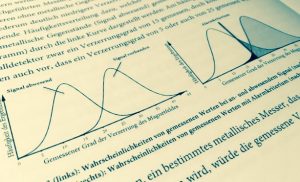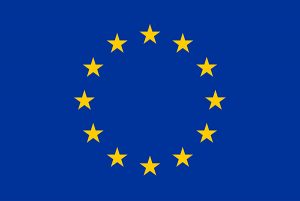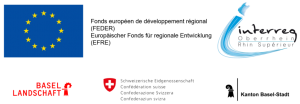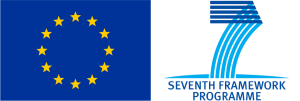“Our magical safeguard against the uncertain character of the world is to deny the existence of chance, to mumble universal and necessary law, the ubiquity of cause and effect, the uniformity of nature, universal progress, and the inherent rationality of the universe … Through science, we have secured a degree of power, of prediction and of control; through tools, machinery and an accompanying technique, we have made the world more comfortable to our needs, a more secure abode … But when all is said and done, the fundamentally hazardous character of the world is not seriously modified, much less eliminated.” (John Dewey)

Main research interests
Philosophy and Ethics of Technology
- Digital methods and technologies
- Trustworthy artificial intelligence
- Civil security and public security provision
- Ethics and privacy “by design”
- Technology Assessment
- Reconstructive ethics
- Scientific policy advice
Political Theory
- Theory of democracy
- Liberalism
- Power and violence
- Mechanisms of surveillance and control
- Plurality and governance
- Trust
Epistemology
- Classical American Pragmatism
- Hermeneutics
- Phenomenology
- Meta-ethics
- Pluralist ethics
Involvement in German national research projects
AIStudyBuddy
KI-basierte Unterstützung zur Studienplanung (2022-ongoing)
Das Verbundprojekt “AIStudyBuddy” wurde im Rahmen der Bund-Länder-Initiative zur Förderung der Künstlichen Intelligenz in der Hochschulbildung gestellt. Gemeinsam mit der RWTH Aachen als Projektkoordinatorin arbeiten die Ruhr-Universität Bochum und die Bergische Universität Wuppertal daran, moderne KI-Technologien zu nutzen, um die Planung und Reflexion individueller Studienverläufe zu unterstützen. Im Fokus steht die Perspektive von Studierenden, aber auch von Studiengangsdesigner:innen. Im Rahmen des Teilprojekts, das der Juniorprofessur „Ethik der digitalen Methoden und Techniken“ zugeordnet ist, sollen über einen ethischen Beitrag insbesondere Aspekte der Diversität, der Studierenden-Autonomie sowie des Schutzes der Privatheit kritisch reflektiert werden.
- Roles: Supervision of ethical work package;
Independently acquired funds - Doctoral researcher: Dominik Bär
- Funded by the German Federal Ministry of Education and Research
- RUB-Project website


UAV-Rescue
UAV-getragene Sensorik zur KI-basierten Unterstützung von Rettungsmissionen (2021-2023)
Ziel des Projektes „UAV-Rescue“ ist es, Rettungskräften bei der Suche nach Verschütteten (z.B. bei eingestürzten Gebäuden) eine erweiterte, besser aufbereitete Datenlage zur Verfügung zu stellen. Dazu soll ein teil-autonom navigierendes Fluggerät mit KI-unterstützter Sensorik zum Einsatz kommen, über das lebende Vermisste schneller lokalisiert und gerettet sowie zugleich die Sicherheit der Rettungskräfte gestärkt werden kann. Es steht dabei zu erwarten, dass durch Entwicklung und Einsatz KI-gestützter Rettungstechnik auch neuartige ethische Konfliktfelder entstehen. Dies betriff zum einen die teil-autonome Navigation sowie zum anderen den Einsatz von KI-unterstützter Sensorik, etwa zur Detektion von Lebenszeichen. Im Rahmen des Teilprojekts der Juniorprofessur für Ethik der digitalen Methoden und Techniken an der Ruhr-Universität Bochum sollen diese ethischen Konflikte gezielt analysiert und gemeinsam mit den Projekt-Partnern minimiert werden.
- Roles: Supervision of ethical work package;
Independently acquired funds - Post-doctoral researcher: Dr. Martina Philippi
- Funded by the German Federal Ministry of Education and Research

KI:edu.nrw
Didaktik, Ethik und Technik von Learning Analytics und KI in der Hochschulbildung (1st Phase: 2021-2023; 2nd Phase: 2023-ongoing)
Software für Learning Analytics (sowie perspektivisch Software im Sinne Künstlicher Intelligenz) wird großes Potential zugeschrieben, um bei der Verbesserung von Lehre und bei der individuellen Förderung von Studierenden einen wertvollen Beitrag zu leisten. Hochschulen sind hierauf allerdings bisher kaum eingestellt und entsprechende Ansätze erst wenig erprobt. Das auf 36 Monate angelegte Projekt KI:edu.nrw sondiert, konzipiert und erprobt exemplarisch am Beispiel der Ruhr-Universität Bochum für den Hochschulbereich Möglichkeiten in diesem Bereich, wobei drei unterschiedliche Ebenen in den Blick genommen werden: die Ebene der Lehrveranstaltung, die Ebene der Institution Hochschule sowie die Ebene hochschulübergreifender Zusammenarbeit.
Im Rahmen des Teilprojekts soll über einen ethischen Beitrag das Überwachungs- und Kontrollpotenzial von Learning Analytics-Anwendungen kritisch reflektiert werden. Im Austausch mit den Projektpartnern sollen Möglichkeiten zur Minimierung negativer Folgenwirkungen erarbeitet und Potentiale zur Stärkung von Autonomie genutzt werden. Hierfür ist auch eine Beteiligung an der Moderation eines partizipativen Prozesses innerhalb der RUB angedacht.
- Roles: Supervision of ethical work package;
Independently acquired funds - Doctoral researcher: Christos Simis
- Funded by the State of North Rhine-Westphalia
- Project website

SecHuman – Sicherheit für Menschen im Cyberspace
Forschungskolleg at the Ruhr University Bochum (2021-ongoing)
SecHuman – Sicherheit für Menschen im Cyberspace ist ein Forschungskolleg, in dem 13 Promovierende technische und gesellschaftliche Probleme der IT-Sicherheit in einem inter- und transdisziplinären Forschungsumfeld untersuchen. Ziel des Kollegs ist es, neben den technologischen Aspekten der IT-Sicherheit, auch Chancen und Folgen für Mensch, Gesellschaft und Kultur in den Blick zu nehmen. Um die gesellschaftspolitische und auch praktische Relevanz der Forschung sicherzustellen, kooperiert das Kolleg mit zahlreichen Praxisakteur*innen aus Wirtschaft, Politik und Zivilgesellschaft.
Das Forschungskolleg SecHuman ist eingebettet in das Horst Görtz Institut an der Ruhr-Universität Bochum, einem der führenden europäischen Forschungsinstitute im Bereich der IT-Sicherheit. Gefördert wird das Projekt, an dem neben der Ruhr-Universität Bochum auch die Technische Universität Dortmund und die Hochschule Dortmund beteiligt sind, für 36 Monate vom Ministerium für Kultur und Wissenschaft des Landes Nordrhein-Westfalen.
- Own roles: Principle Investigator, PhD Supervisor
- Doctoral researcher: Kaya Cassing
- Project website

Involvement in international research projects
Philosophy in the Age of New Wars
Freiburg – Penn State Collaboration Development Program 2018 (completed)
As many military historians and theorists of conflict have recently argued, we have been witnessing a transformation in the history of warfare over the past 20 years under the heading of the ‘New Wars’. Advances in robotic and drone technology, cyber-warfare, and the sprawling fragmentation of conflict have substantially altered both how we think about war and how war is pursued. We want to address the philosophical implications of this phenomenon of the ‘New Wars’: How have transformations in warfare, technology, and the culture of war changed philosophical thinking? How might philosophical thinking come to terms with such transformations?
The aim of this 12-month collaboration between the philosophy departments at the Penn State University and the University of Freiburg is to explore these questions through an approach combining various philosophical methods of analysis and argumentation in conjunction with an interdisciplinary outreach to other related fields of study (e.g. history, cultural studies, security studies). The aim of this project to develop a novel field of philosophical research by drawing on and challenging established frameworks for the conceptualization of warfare, violence, and the human condition.
- Roles: 3 week research collaboration stay at Penn State,
involved in acquisition process
(Freiburg Lead: Prof. Dr. Hans-Helmuth Gander) - Project website
TRESSPASS
robusT Risk basEd Screening and alert System for PASSengers and luggage (2018-2021)
No further involvement from Feb 2020 onwards due to change of workplace
The goal of TRESSPASS is to develop, demonstrate and validate a single cohesive risk-based border management concept for air, maritime and land border crossing points. It follows an ethics and data protection “by design” approach.
The 42-month EU H2020 innovation action project will address border control tasks at regular border crossing points, such as customs and smuggling prevention, immigration control, police searches for suspects, as well as cross border crime and terrorism prevention. Under a newly developed single cohesive concept, related threats will be managed as risks tailored to the specific situational needs of individual border crossing points.
TRESSPASS does not address border crossings outside of regular border crossing points (e.g. by boat). Threats posed by state-actors are out of scope, as well.
Building on previous ethical research as part of the project XP-DITE, the role of the University of Freiburg’s Centre for Security and Society is to provide the basis and input needed to address ethical, legal and societal aspects from the start and throughout the design and development process, with a special focus on data protection needs. Furthermore, Freiburg also leads the tasks related to accompanying research ethics.
-

EU Horizon 2020 Roles: Original Freiburg Lead Researcher and Work Package Leader (until change of workplace); Independently acquired third party funds
- CORDIS website
SERIOR
Graduate Academy “Security – Risk – Orientation” (completed)
The Eucor universities, including the University of Freiburg, and the University of Koblenz and Landau, and further project partners intend to establish a tri-national graduate academy on the topic of risk management and risk appraisal. A joint qualification program for junior researchers and a knowledge transfer program with businesses and political organizations will open up new research potential on the Upper Rhine.
My main task within this EU Interreg funded project is to coordinate the different contributions from the University of Freiburg and to develop tools and concepts that facilitate establishing the tri-national graduate academy for PhD-students in Philosophy.
-

EU Interreg (Upper Rhine Region) Roles: Coordination and Research, involved in acquisition process
(Freiburg Lead: Prof. Dr. Hans-Helmuth Gander) - Project website | Interreg website
- CSS website
XP-DITE
Accelerated Checkpoint Design, Integration, Test and Evaluation (completed)
The aim of XP-DITE is to develop, demonstrate, and validate a comprehensive approach to the design and evaluation of checkpoints. This approach will balance the main aspects of performance: security provision, ethical compliance, operational cost and passenger satisfaction. Furthermore, the approach will overcome current security regulations’ focus on equipment components and specific screening procedures within an airport checkpoint. Instead, XP-DITE’s balanced approach will allow for the evaluation of an airport checkpoint as a whole.
My main task within this project is to develop a framework for the identification and evaluation of ethical and societal risks of airport screening. The main research focus is on aspects of privacy and fundamental rights, as well as on societal acceptability and acceptance. As part of XP-DITE’s balanced approach, this framework will allow for ethical and societal considerations to guide the design process of airport checkpoints from the very beginning.
Within the project consortium, I act as a work package leader and am responsible for financial and administrative management with respect to the University of Freiburg’s participation in this EU funded FP7-project.
-

EU 7th Framework Programme Roles: Researcher, Work Package Leader
(Freiburg Lead: Prof. Dr. Hans-Helmuth Gander) - Project website | CORDIS website
- CSS website
TeraSCREEN
Multi-frequency multi-mode Terahertz screening for border checks (completed)
TeraSCREEN develops an innovative concept of multi-frequency multi-mode Terahertz (THz) detection with new automatic detection and classification functionalities. The system developed demonstrates, at a live control point,
the safe automatic detection and classification of objects concealed under clothing, whilst respecting privacy and increasing current throughput rates. This innovative screening system combines multi-frequency images taken by passive and active imagers which scan the subjects and obtain complementary information, thus allowing for automatic threat recognition.
My main task is within the project is to accompany the system integration and pilot test to ensure compliance with research ethical standards. Within the project consortium, I act as a work package leader and am responsible for financial and administrative management with respect to the University of Freiburg’s participation in this EU funded FP7-project.
-

EU 7th Framework Programme Role: Researcher, Work Package Leader
(Freiburg Lead: Prof. Dr. Ralf Poscher) - Project website | CORDIS website
SURVEILLE
Surveillance: Ethical Issues, Legal Limitations, and Efficiency (completed)
SURVEILLE has four main objectives: (1.) To provide a comprehensive survey of the types of surveillance technology deployed in Europe. (2.) To assess the benefits and costs of surveillance technology. (3.) To identify, elaborate and assess the whole range of legal and ethical issues raised by the use of surveillance technology (4.) To communicate continuously the results of the research.
From May to August 2012, as part of Freiburg’s initial research team, my main task within this EU FP-7 funded project was to review common models used for risk and threat assessment and develop ways to use them for considering ethically relevant implications for societal openness.
-

EU 7th Framework Programme Role: Researcher
(Freiburg Lead: Prof. Dr. Hans-Helmuth Gander) - Project website | CORDIS website
- CSS website